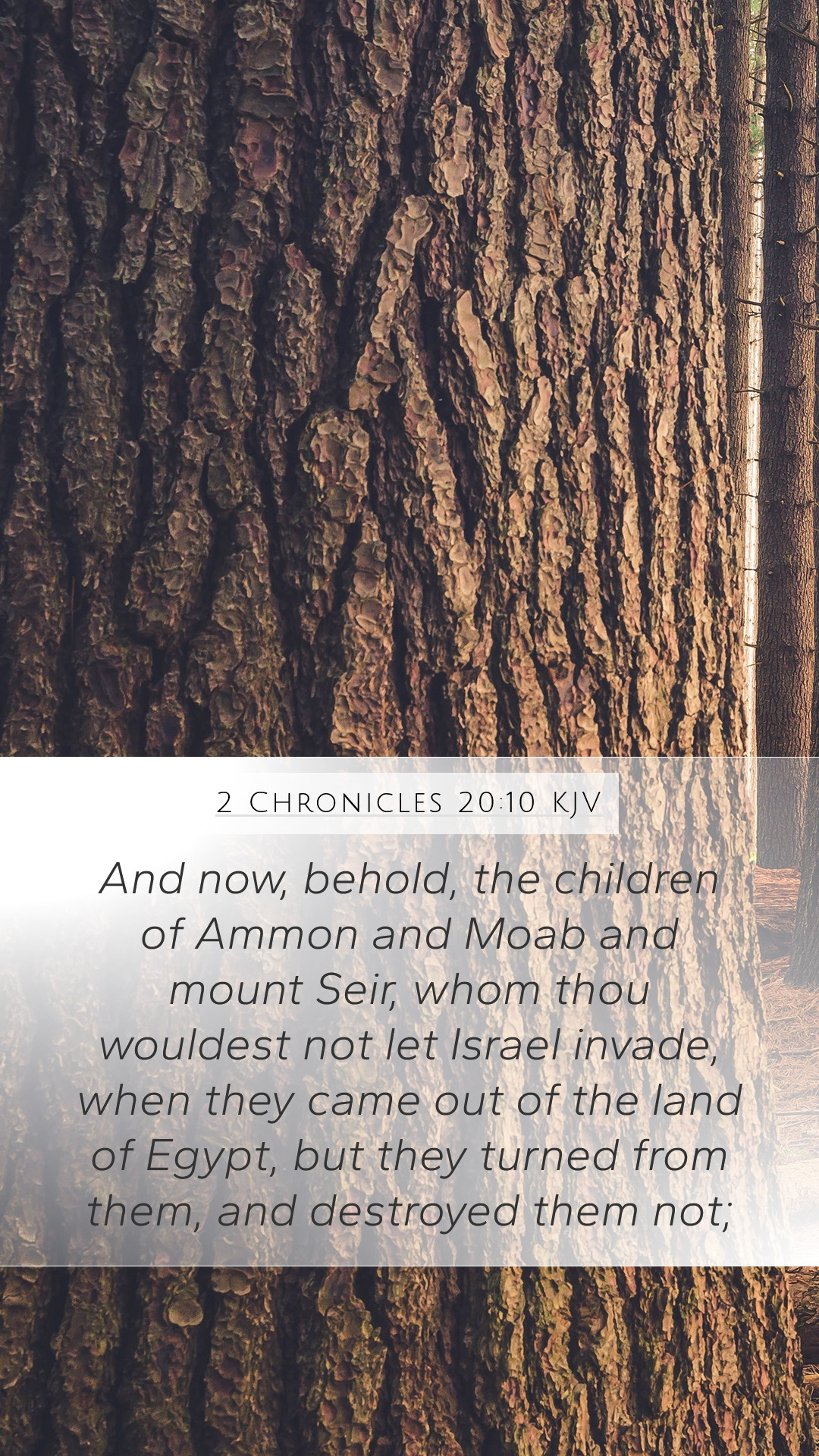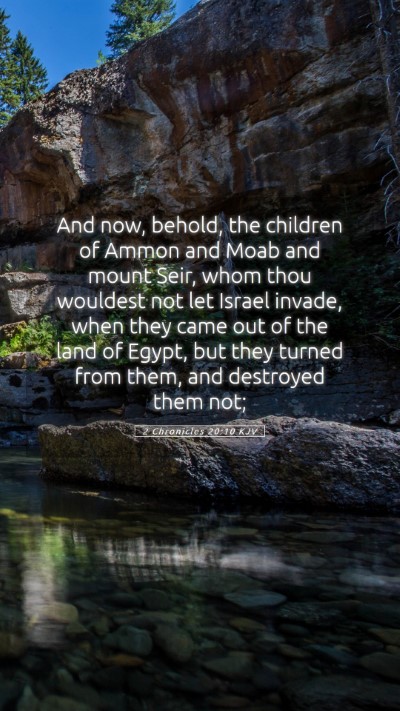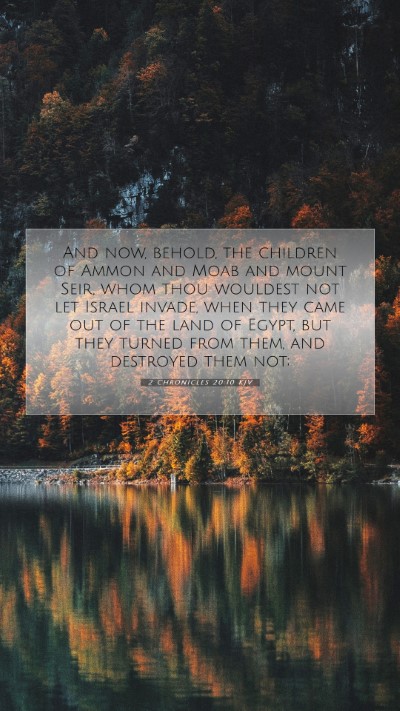Understanding 2 Chronicles 20:10
This passage from 2 Chronicles 20:10 is a critical moment within the narrative of King Jehoshaphat’s reign in Judah. It illustrates a profound example of seeking divine intervention in times of distress. As we delve into the Bible verse meanings and interpretations of this verse, we will combine insights from various public domain commentaries, including those by Matthew Henry, Albert Barnes, and Adam Clarke.
Context of 2 Chronicles 20:10
King Jehoshaphat faces a grave threat from a coalition of armies, including the Moabites and Ammonites. This situation prompts him to seek God’s guidance through prayer and fasting, demonstrating deep reliance on divine support during crises. This behavior sets up a key tension that the verse addresses.
Insights from Commentaries
-
Matthew Henry’s Commentary:
Henry emphasizes the importance of approaching God in humility and recognizing one’s inadequacies in the face of overwhelming challenges. He notes that in this verse, the king acknowledges that the enemies are far too mighty for him, highlighting the necessity of divine help. The core message is about trust in God amidst fear.
-
Albert Barnes’ Commentary:
Barnes focuses on the confidence one can have when placing their situation in God’s hands. He explains that Jehoshaphat’s prayer acknowledges the power of God over all nations and emphasizes God’s unchallenged sovereignty as a source of hope. This serves to remind believers how vital it is to call upon God in times of trouble.
-
Adam Clarke’s Commentary:
Clarke provides a thorough analysis of the contextual elements that surround this verse. He highlights the historical roots of the conflict and the faith displayed by Jehoshaphat as he turns solely to God. His reflections suggest that invoking God should be the first response to adversity, offering profound Bible study insights.
Application and Significance
The significance of 2 Chronicles 20:10 lies in its timeless message of depending on God during trials. This verse teaches believers about the power of prayer and community supplication in Bible study lessons. It resonates with those searching for bible verse interpretations that highlight reliance on divine strength rather than human capabilities.
Prayer as a Response to Crisis
The above insights underline that true Bible verse understanding includes applying these lessons to daily life. In times of trouble, we are encouraged to follow Jehoshaphat’s example by praying diligently and seeking God’s guidance.
Encouragement in Vulnerability
This verse provides encouragement for individuals in Bible study groups, emphasizing that admission of weakness is not a failing but a prerequisite for receiving God’s powerful assistance. Thus, it invites believers to look for Bible study resources to enhance their understanding of reliance on God in personal struggles.
Cross References
- Psalm 34:17 - "The righteous cry out and the Lord hears them; he delivers them from all their troubles."
- Isaiah 41:10 - "So do not fear, for I am with you; do not be dismayed, for I am your God."
- Philippians 4:6-7 - "Do not be anxious about anything, but in every situation, by prayer and petition, with thanksgiving, present your requests to God."
Conclusion
In conclusion, 2 Chronicles 20:10 not only conveys a historical account but also serves as a powerful Bible verse commentary on the nature of faith and prayer. Believers are encouraged to remember that God's support is paramount in times of crisis. Through understanding the verse's meaning and applying its lessons, one can cultivate a deeper relationship with God amidst life’s challenges.


